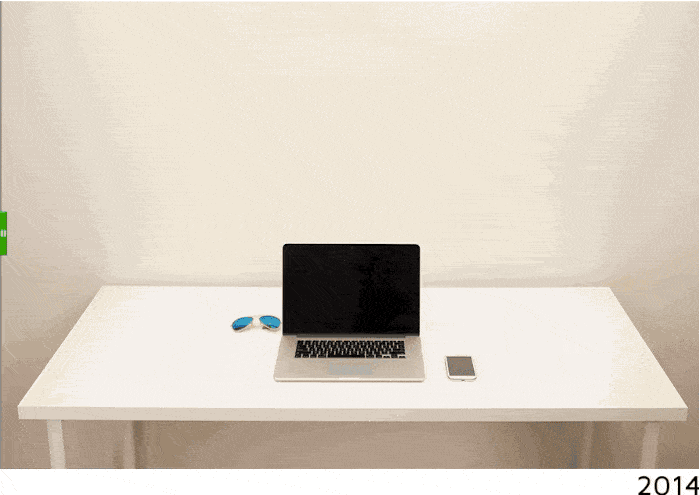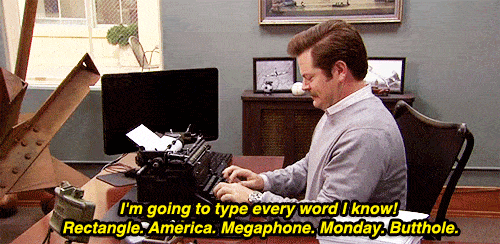Do you sometimes wish there were more than 24 hours in a day? If Beyoncé can have a concert in Japan in the morning, a lunch interview in London, and dinner at the Oscars, then there must be some secret we’re missing.
Thankfully, there are some things you can do to make your day more productive.
#1. Get up an hour (or two) earlier.

Some of the most successful people swear by their early morning routine, which usually starts somewhere between 4:30 and 5:30 am. Waking up before the rest of the world will give you more time for yourself: that means extra hours for exercise, writing in your journal, planning the day ahead, or even just having a relaxing breakfast with your cat. Remember: it’s just mind over mattress.
#2. Use a time log.

Sometimes we get so engrossed in certain tasks that we don’t notice the time flying past. Writing down what you do for every hour and constantly checking your progress throughout the course of the day will help you figure out how long a project really takes to finish versus how long you think it will take.
#3. Start with the most important first.

One of the most-practiced rookie errors of non-productive people is that they start their days with meetings and emails, leaving the important and urgent tasks for later. But studies show that 2.5 to 4 hours after waking is when your brain is at its sharpest. So don’t waste that time deleting wayward promotional emails in your spam folder.
#4. Mess creates stress.

A cluttered desk equals a cluttered mind. Maintaining a neat, distraction-free work environment will decrease your stress levels and allow you to get more work done.
#5. Create a daily routine and stick to it.

What do massively productive creatives Stephen King, John Grisham, and Thomas Edison have in common? They all follow strict daily routines — that is, what time they get up, when they start work, what time they exercise, when they go to sleep, and so on. It takes a lot of discipline to be able to adhere to a specific schedule, but once you do, you’ll reap the rewards.
#6. Avoid useless meetings.

Sitting through hours of mostly-pointless discussions will just eat up your valuable time. If you really can’t get around it, schedule them at around 3 in the afternoon — after all your urgent tasks are done — and try to conduct them standing up. This technique for short meetings will save time and encourage the attendees to stay attentive.
#7. Focus on one thing at a time.

Don’t multitask, period: an average person has 70,000 thoughts a day, or 49 per minute. All the new distractions brought about by technology are rewiring how our brains work, and dropping our average IQ by 5 points. With lots of mental discipline and enough practice, you can be one of the rare unicorns who exercise mono-maniacal focus on just one thing from start to finish.
#8. Don’t work through a brain fog.

Too much focus can tire out even the most energetic person. When you start to slow down, take a break. Often, our natural circadian rhythm causes a dip in energy levels around afternoon tea-time. Get a snack or take a power nap. Even better, take a power walk to buoy your mood and ability to handle stress.
#9. If you’ve gotten the ball rolling, don’t stop.

Keep the work momentum. If you get stuck for more than 30 seconds, move on. Staying on one task threatens your productivity in that it takes up too much of your valuable time, and demotivates you. Harvard research shows nothing is more encouraging than progress. Proactive people appreciate how far they have come and take inspiration from there.
#10. Check your emails in the afternoon and keep them brief.

Writing emails early in the morning scrambles your priorities for the rest of the day. Additionally, limit your emails to a short 140 characters. Any intelligent person will be able to understand and respond to a brief but properly-worded email. Long, superfluous sentences are just a waste of time.
#11. Learn to say no.

You are doing a great disservice to yourself by biting off more than you can chew. Being a “yes” man or woman is not always a good thing. Save valuable time and avoid unnecessary stress by politely declining responsibilities that you feel you can no longer handle.
#12. Write a first draft in 15 minutes.

When making a report, presentation, or article, remember not to question anything when writing your first draft. It’s what writers call a “brain dump”: set a timer, sit down, and start writing something — anything. It’s mostly rubbish the first few minutes, but then you start sweating, and the creative juices are activated. Before you know it, you’ve got yourself a masterpiece.
#13. Stay physically active.

Exercise has been found to be one of the greatest productivity tools in the world. Research suggests that exercise triggers the release of “happy” chemicals in our brains. The feeling of working out is akin to hitting a reset button on your head. It only takes 20 minutes of physical activity to inject a much needed boost of productivity to our day. People who exercise regularly tend to be more calm, alert and happy than people who are inactive.
#14. Schedule time blocks.

Work in 90-minute chunks of time, with 10 minute intervals for recovery. This is loosely based on Parkinson’s Law, the idea that work simply expands to fill the time available for its completion. Time blocking will help keep you on track, especially if you have a deadline.
#15. Recharge at the end of every day.

In order to avoid short-circuiting your brain, it is of utmost importance that you use your evenings to recuperate from the day’s hard work. But we’re not talking about passive activities like watching TV and eating. Research suggests developing an active social life and engaging in physical hobbies are the most effective ways to rid one’s mind of work-related stress.
#16. Sleep early.
When you’re tired, you are more likely to jump aimlessly from one task to another without clarity. We all want to become the best versions of ourselves, and we can only do that when our mind and body are both working at optimum levels. Research has shown that while the duration of sleep is not directly related to productivity, the timing of sleep is. Following our natural circadian rhythm helps our body reach its peak.


